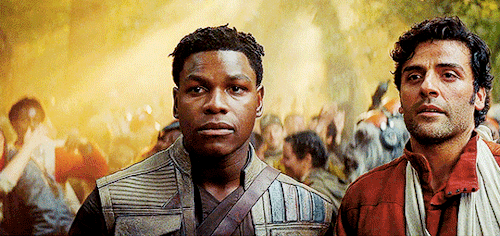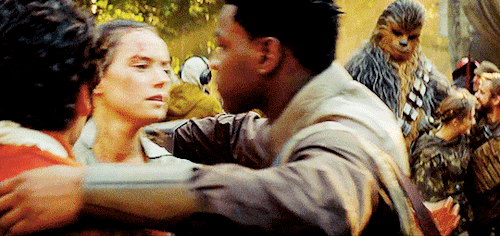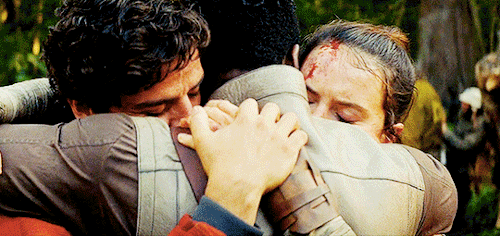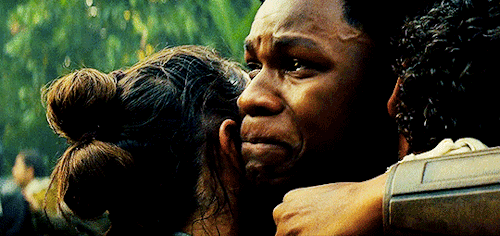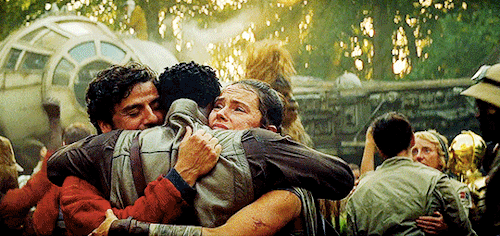Your Narrator And Each Of Your Characters Should Sound Different From One Another (unless Your Story


Your narrator and each of your characters should sound different from one another (unless your story is in the first person and one of the characters is actually telling the story!). Remember that no two people speak in exactly the same way, so if all your characters sound identical to your narrator, it will pull the reader out of the story.

Every person has distinct vocal habits or “go-to’s,” words or phrases they use often, and giving your characters their own vocal “go-to’s” can help lend them some realism and make it easier to tell them apart from one another. Here’s a little hint: we use these “go-to’s” even more often when we’re distracted or not fully paying attention to the conversation and what we’re saying.

People sometimes stumble over their words. Let your characters stutter, or repeat themselves, or forget what they were about to say, or even ramble sometimes, especially if they are feeling flustered or overwhelmed in the scene. This will add realism to your dialogue, and make your characters seem more real to your readers!

Just like in real life, the situation should affect how your character speaks. For example, if a character has just gotten a big, unpleasant surprise, they probably won’t be in the right frame of mind to make a calm, articulate speech. Think about what’s happening and how it will affect what your character says and the way that they say it.

Most people speak differently depending on who they are talking to. For example, you probably wouldn’t talk to your boss the same way you would talk to a friend! Think about your character’s relationship to the person they’re talking to, and how they feel about that person, and let that come out in their dialogue.

Descriptive verbs (like “exclaimed” or “demanded” instead of “said”) are a great way to breathe some life into your dialogue, because they give the reader more information, telling us not just what the character said but how they said it. On the other hand, when used too often, or incorrectly, descriptive verbs can pull the reader right out of the story (for example, using “demanded” when the character isn’t making any kind of demand in their dialogue).
More Posts from Lune-versatile and Others
Chapters: 1/1 Fandom: Fairy Tail Rating: Explicit Warnings: Creator Chose Not To Use Archive Warnings Relationships: Laxus Dreyar/Lucy Heartfilia Characters: Laxus Dreyar, Lucy Heartfilia Summary:
After Laxus is expelled from Fairy Tail he goes off in search of himself. What he didn't expect was that Lucy would follow him.
you don’t need to write to be successful, and you don’t need to write for other people. it’s ok to write because you think it’s fun, and to keep your writing to yourself. you don’t need to be good at it, or learn every single rule there is. if it makes you happy, then what’s enough.
A Complete Beginner’s Guide to Moodboards
Please note that this is a guide for complete beginners who have no idea how to get started on making moodboards. Only the very basics will be covered here.
Have you ever wanted to make a moodboard but didn’t know where to start? You have ideas but you have never edited a picture before? Can’t afford photoshop and don’t know how to use it? Look here, this guide is for you!
This guide includes: Free photoshop alternatives, where to find images, and basic tips and tricks to make your moodboard. Click the Read More below :)
Afficher davantage
how to start reading again
from someone who was a voracious reader until high school and is now getting back into it in her twenties.
start with an old favourite. even though it felt a little silly, i re-read the harry potter series one christmas and it wiped away my worry that i wasn't capable of reading anymore. they are long books, but i was still able to get completely immersed and to read just as fast as i had years and years ago.
don't be afraid of "easier" books. before high school i was reading the french existentialists, but when getting back into reading, i picked up lucinda riley and sally rooney. not my favourite authors by far, but easier to read while not being totally terrible. i needed to remind myself that only choosing classics would not make me a better or smarter person. if a book requires a slower pace of reading to be understood, it's easier to just drop it, which is exactly what i wanted to avoid at first.
go for essays and short stories. no need to explain this one: the shorter the whole, the less daunting it is. i definitely avoided all books over 350 pages at first and stuck to essay collections until i suddenly devoured donna tartt's goldfinch.
remember it's okay not to finish. i was one of those people who finished every book they started, but not anymore! if i pick up a book at the library and after a few chapters realise i'd rather not read it, i just return it. (another good reason to use your local library! no money spent on books you might end up disliking.)
analyse — or don't. some people enjoy reading more when they take notes or really stop to think about the contents. for me, at first, it was more important to build the habit of reading, and the thought of analysing what i read felt daunting. once i let go of that expectation, i realised i naturally analyse and process what i read anyway.
read when you would usually use your phone. just as i did when i was a child, i try to read when eating, in the bathroom, on public transport, right before sleeping. i even read when i walk, because that's normally a time i stare at my screen anyway. those few pages you read when you brush your teeth and wait for a friend very quickly stack up.
finish the chapter. if you have time, try to finish the part you're reading before closing the book. usually i find i actually don't want to stop reading once i get to the end of a chapter — and if i do, it feels like a good place to pick up again later.
try different languages. i was quickly approaching a reading slump towards the end of my exchange year, until i realised i had only had access to books in english and that, despite my fluency, i was tired of the language. so as soon as i got back home i started picking up books in my native tongue, which made reading feel much easier and more fun again! after some nine months, i'm starting to read in english again without it feeling like a huge task.
forget what's popular. i thought social media would be a fun way to find interesting books to read, but i quickly grew frustrated after hating every single book i picked up on some influencer's recommendation. it's certainly more time-consuming to find new books on your own, but this way i don't despise every novel i pick up.
remember it isn't about quantity. the online book community's endless posts about reading 150 books each year or 6 books in a single day easily make us feel like we're slow, bad readers, but here's the thing: it does not matter at all how many books you read or what your reading pace is. we all lead different lives, just be proud of yourself for reading at all!
stop stressing about it. we all know why reading is important, and since the pandemic reading has become an even more popular hobby than it was before (which is wonderful!). however, there's no need to force yourself to be "a reader". pick up a book every now and then and keep reading if you enjoy it, but not reading regularly doesn't make you any less of a good person. i find the pressure to become "a person who reads" or to rediscover my inner bookworm only distances me from the very act of reading.
How to Write Flashbacks More Effectively
Many of our favorite books include a flashback or two. They put the main story on pause and reveal things readers need to know, but how do authors decide when to use them?
These are a few tips I have about writing flashbacks effectively so you can feel confident about weaving them into your stories.
1. Create a Clear Trigger
When you walk into a kitchen and smell cookies baking in the oven, the smell might trigger a memory. Maybe it’s a happy memory of baking with your family or exchanging cookies with your friends during a holiday party.
You wouldn’t think about that memory in that exact moment without the sensory trigger. Flashbacks work the same way.
Give your character a specific trigger so it’s obvious they’re having a flashback. You shouldn’t only rely on making the flashback italicised or set off by page breaks. It will feel more expertly integrated if there’s a cause-and-effect relationship with the scene.
The trigger can also serve a purpose. Maybe your protagonist hears a car honking and has a flashback to their recent car accident. It could let the reader in on how the accident happened or what it was like. The sound being a trigger also shows readers that your protagonist hasn’t dealt with the emotional ramifications of that traumatic experience, so it’s still fresh and affecting how they live their life.
Remember, there should be a clear point of return when the flashback ends. It may not always be a second trigger, like your protagonist’s best friend calling their name. It could also be a sensory moment or experience within the flashback that makes the protagonist essentially wake up due to discomfort or becoming aware that it’s a memory.
2. Make It Plot Essential
Flashbacks are plot essential, meaning that they have to either do something for the reader or your protagonist (maybe both at the same time).
In the above example, reliving the car accident informs the reader about what the protagonist experienced before the story started.
A flashback about an ex-partner treated the protagonist in a previous relationship could motivate the protagonist to make a choice in their current relationship that they wouldn’t have otherwise. The choice propels the story in a new direction.
3. Get to the Point
It’s important to keep flashbacks brief. Readers are investing their time and energy into the story you’re telling, not the story that happened leading up to your plotline.
Extended flashbacks can also confuse readers. They may not understand when the flashback has ended, especially if the relived experience happened to your protagonist recently.
A few paragraphs to a page or two will likely be more than enough to get your flashback’s point across. If it runs longer, make a mental note to return to that particular scene when you’re in your editing phase.
-----
Flashbacks can be effective storytelling tools, but use these tips to avoid relying on them too much or in the wrong ways. If one doesn’t feel right even after you’ve worked through your initial edits, you can always take it out and work the information in by writing another present-day scene or conversation.
I really admire how you've grown your Tumblr. Can you share how you started off on this platform and what advice you would give a new Tumblr use who's a writer who wants to do the same?
Growing on Tumblr...
So You Want To Start A Blog? Here’s a little bit about getting started. Some advice, some resources, some things you may want to keep handy, etc.
Post consistently and try to keep a comprehensive theme/sensibility to your content and your blog. You want people to visit again and again, and you want them to immediately be interested in whatever you post when it appears on their dashboard. You want to stay in their mental orbit when they’re logged on, and you want to continue capturing their attention by regularly posting things they’d expect based on what they can see on your blog. Do what you have to do to stay motivated and keep that goal in your mind.
How To Motivate Yourself To Write
Healthy Forms of Motivation
How To Have A Productive Mindset
Why “Burnout” Is Okay - The Creative Cycle
“Does What I’m Writing Matter?”
Taking Writing Seriously For The First Time
Finding Time To Write
Take advice with a grain of salt. A lot of this is luck and algorithms. Do what you can and remember that your speed of growth often has little to do with the quality of your content. The only thing I can guarantee is that if you stop posting and stop producing content, you’ll stop growing. Every like, every reblog, and every follow affects your blog more than you know.
Tips & Advice for Aspiring Authors, Writers, and Poets
How To Write An Article People Will Read
On Getting Started As A Writer
Tips on Getting Higher Engagement
For Writers Who Want To Become Popular
–
Masterlist
If you enjoy my blog and wish for it to continue being updated frequently and for me to continue putting my energy toward answering your questions, please consider Buying Me A Coffee, or pledging your support on Patreon, where I offer early access and exclusive benefits for only $5/month.
Shoutout to my $15+ patron, Douglas S.!
Chapters: 1/1 Fandom: One Piece Rating: General Audiences Warnings: Creator Chose Not To Use Archive Warnings Relationships: Roronoa Zoro/Vinsmoke Sanji, Roronoa Zoro & Vinsmoke Sanji Characters: Roronoa Zoro, Vinsmoke Sanji, Kuina (One Piece), Monkey D. Luffy, Portgas D. Ace, Aka Ashi no Zeff | Red-Leg Zeff Additional Tags: Soulmates, Alternate Universe - Soulmates, POV Alternating Summary:
A soulmate's words on your right arm doesn't always mean something special, or so Zoro and Sanji naively thought.
being a self-taught artist with no formal training is having done art seriously since you were a young teenager and only finding out that you’re supposed to do warm up sketches every time you’re about to work on serious art when you’re fuckin twenty-five
WEBSITES FOR WRITERS {masterpost}
E.A. Deverell - FREE worksheets (characters, world building, narrator, etc.) and paid courses;
Hiveword - Helps to research any topic to write about (has other resources, too);
BetaBooks - Share your draft with your beta reader (can be more than one), and see where they stopped reading, their comments, etc.;
Charlotte Dillon - Research links;
Writing realistic injuries - The title is pretty self-explanatory: while writing about an injury, take a look at this useful website;
One Stop for Writers - You guys... this website has literally everything we need: a) Description thesaurus collection, b) Character builder, c) Story maps, d) Scene maps & timelines, e) World building surveys, f) Worksheets, f) Tutorials, and much more! Although it has a paid plan ($90/year | $50/6 months | $9/month), you can still get a 2-week FREE trial;
One Stop for Writers Roadmap - It has many tips for you, divided into three different topics: a) How to plan a story, b) How to write a story, c) How to revise a story. The best thing about this? It's FREE!
Story Structure Database - The Story Structure Database is an archive of books and movies, recording all their major plot points;
National Centre for Writing - FREE worksheets and writing courses. Has also paid courses;
Penguin Random House - Has some writing contests and great opportunities;
Crime Reads - Get inspired before writing a crime scene;
The Creative Academy for Writers - "Writers helping writers along every step of the path to publication." It's FREE and has ZOOM writing rooms;
Reedsy - "A trusted place to learn how to successfully publish your book" It has many tips, and tools (generators), contests, prompts lists, etc. FREE;
QueryTracker - Find agents for your books (personally, I've never used this before, but I thought I should feature it here);
Pacemaker - Track your goals (example: Write 50K words - then, everytime you write, you track the number of the words, and it will make a graphic for you with your progress). It's FREE but has a paid plan;
Save the Cat! - The blog of the most known storytelling method. You can find posts, sheets, a software (student discount - 70%), and other things;
I hope this is helpful for you!
(Also, check my blog if you want to!)
-
 storyofmorewhoa liked this · 3 years ago
storyofmorewhoa liked this · 3 years ago -
 oxymitch-archive reblogged this · 3 years ago
oxymitch-archive reblogged this · 3 years ago -
 tams-writeblr reblogged this · 3 years ago
tams-writeblr reblogged this · 3 years ago -
 psychic-timetraveler reblogged this · 3 years ago
psychic-timetraveler reblogged this · 3 years ago -
 madnessandhatred liked this · 3 years ago
madnessandhatred liked this · 3 years ago -
 ryugarika reblogged this · 3 years ago
ryugarika reblogged this · 3 years ago -
 saucywenchwritingblog reblogged this · 3 years ago
saucywenchwritingblog reblogged this · 3 years ago -
 slice-o-yamachan liked this · 3 years ago
slice-o-yamachan liked this · 3 years ago -
 jfictitional reblogged this · 3 years ago
jfictitional reblogged this · 3 years ago -
 lordpuzzle28 reblogged this · 3 years ago
lordpuzzle28 reblogged this · 3 years ago -
 spidermazn liked this · 3 years ago
spidermazn liked this · 3 years ago -
 jfictitional liked this · 3 years ago
jfictitional liked this · 3 years ago -
 mashuheartwrites liked this · 3 years ago
mashuheartwrites liked this · 3 years ago -
 dapucha liked this · 3 years ago
dapucha liked this · 3 years ago -
 purpleprosaist liked this · 3 years ago
purpleprosaist liked this · 3 years ago -
 dubiousdisco liked this · 3 years ago
dubiousdisco liked this · 3 years ago -
 myseri liked this · 3 years ago
myseri liked this · 3 years ago -
 00smodel reblogged this · 3 years ago
00smodel reblogged this · 3 years ago -
 lordpuzzle28 liked this · 3 years ago
lordpuzzle28 liked this · 3 years ago -
 known-as-naya liked this · 3 years ago
known-as-naya liked this · 3 years ago -
 no-book-left-behind reblogged this · 3 years ago
no-book-left-behind reblogged this · 3 years ago -
 arcana-witch liked this · 3 years ago
arcana-witch liked this · 3 years ago -
 lune-versatile reblogged this · 3 years ago
lune-versatile reblogged this · 3 years ago -
 lune-versatile liked this · 3 years ago
lune-versatile liked this · 3 years ago -
 megnrdyfreakx3 liked this · 3 years ago
megnrdyfreakx3 liked this · 3 years ago -
 mccullersisalonelyhunter reblogged this · 3 years ago
mccullersisalonelyhunter reblogged this · 3 years ago -
 bumbleblues liked this · 3 years ago
bumbleblues liked this · 3 years ago -
 outoflov liked this · 3 years ago
outoflov liked this · 3 years ago -
 wasabi-chocolatebar reblogged this · 3 years ago
wasabi-chocolatebar reblogged this · 3 years ago -
 rustytusks liked this · 3 years ago
rustytusks liked this · 3 years ago -
 my-watch-begins liked this · 3 years ago
my-watch-begins liked this · 3 years ago -
 ticketpigeon liked this · 3 years ago
ticketpigeon liked this · 3 years ago -
 cheezbot liked this · 3 years ago
cheezbot liked this · 3 years ago

